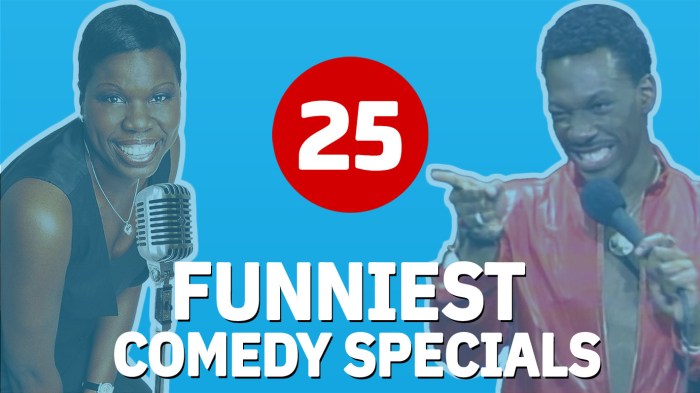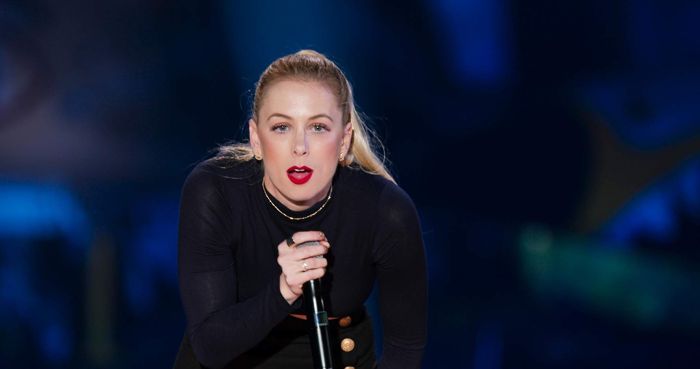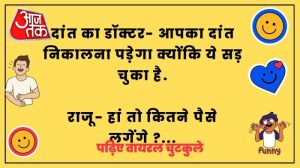
Ever wondered what goes into crafting those hilarious hours of stand-up we binge-watch? From the sweat-soaked mic to the roaring laughter, a stand-up comedy special is a carefully orchestrated masterpiece. It’s more than just jokes; it’s storytelling, social commentary, and pure comedic genius all rolled into one electrifying performance. Get ready to peel back the curtain and explore the world of stand-up comedy specials – from their humble beginnings to their current reign as a major entertainment force!
We’ll journey through the history of these comedic gems, exploring how they’ve evolved, the diverse styles they encompass, and the incredible impact they’ve had on our culture. We’ll meet the comedic masterminds behind the specials, dissect their writing process, and delve into the marketing strategies that propel these shows to success. Prepare for a laughter-filled exploration of the art, business, and cultural significance of stand-up comedy specials.
Defining Stand-Up Comedy Specials
Stand-up comedy specials are distinct, self-contained performances filmed before a live audience and released as a single, cohesive unit. Unlike a typical stand-up set at a club, which might be a shorter, more improvisational performance, a special is meticulously crafted, edited, and produced for a broader audience, often broadcast on television or streaming platforms. This focused, polished nature distinguishes it from other comedy formats like sketch comedy, sitcoms, or stand-up routines featured on talk shows.A successful stand-up comedy special relies on several key elements working in harmony.
The comedian’s material is paramount, requiring a well-structured set with a strong narrative arc, clever writing, and relatable or insightful humor. The performance itself must be engaging, with strong stage presence, impeccable timing, and a connection with the audience. Finally, the production quality plays a significant role; professional lighting, sound, and editing are essential to creating a polished, enjoyable viewing experience.
A poorly-produced special, even with great material, can fall flat. Think of the difference between a grainy YouTube clip of a comedian and a professionally-shot Netflix special.
Stand-Up Comedy Special Production Process
The creation of a stand-up comedy special is a multi-stage process involving extensive planning and collaboration. It typically begins with the comedian developing and refining their material, often through months or even years of performing and testing jokes in smaller venues. Once a solid set is developed, a location is selected for filming, often a theater or other performance space that can accommodate a sizable audience.
The filming itself involves multiple takes to capture the best performance and ensure the highest quality audio and video. After filming, the footage undergoes rigorous editing, which may involve rearranging jokes, removing less successful segments, and generally shaping the performance into a cohesive whole. Finally, the edited special is then marketed and released through various channels, be it a television network, streaming service, or even a direct-to-consumer release.
For example, Chris Rock’s “Total Blackout: The Tamborine” special showcases this meticulous process, going through many rewrites and several test runs before being filmed for release on Netflix. The entire process from conception to release can take anywhere from six months to over a year, depending on the comedian’s schedule and the production company’s workflow.
Historical Overview of Stand-Up Comedy Specials

The evolution of the stand-up comedy special is a fascinating journey, reflecting broader societal shifts and technological advancements. From humble beginnings on television’s fringes to its current status as a major cultural force, the form has constantly reinvented itself, showcasing the comedic genius of countless performers and shaping how we consume comedy. This overview traces the key milestones and influential figures that have defined this dynamic genre.
Early Years and Television’s Influence
The roots of the stand-up comedy special can be traced back to the early days of television. While not formally structured as “specials” in the modern sense, early appearances by comedians on variety shows and late-night programs laid the groundwork. Think of performers like Lenny Bruce, whose controversial and boundary-pushing material challenged societal norms, albeit often without the benefit of a dedicated special format.
The 1960s and 70s saw the emergence of more structured comedy routines on television, often within broader programming, but these lacked the dedicated, focused presentation of later specials. The lack of widespread home video recording also limited the reach and longevity of these performances. These early appearances, however, planted the seeds for the future explosion of the stand-up comedy special.
The Rise of the Stand-Up Special (1970s-1990s)
The 1970s and 80s marked a significant turning point. HBO, with its relatively looser regulatory environment compared to network television, played a crucial role in nurturing the stand-up special. Comedians like George Carlin, whose “7 Words You Can Never Say on Television” routine became legendary, pushed creative boundaries and gained wider audiences through these cable specials. Richard Pryor’s raw, unflinching humor also redefined what was possible in stand-up, while Eddie Murphy’s high-energy performances captured a younger generation.
These specials were groundbreaking, not just for their content, but for their production values. While still relatively simple compared to today’s standards, they offered a more focused, cinematic experience than previous televised comedy appearances. The rise of home video also allowed these specials to reach a broader audience, building a legacy that continues to influence comedians today.
The Modern Era and Beyond (2000s-Present)
The 21st century has witnessed an explosion in the number and diversity of stand-up comedy specials. Netflix, Amazon Prime Video, and other streaming services have become major players, providing platforms for established stars and emerging talents alike. This accessibility has led to a wider range of comedic styles and perspectives, reflecting the increasingly diverse nature of modern society.
The use of sophisticated editing techniques, advanced lighting and sound, and even cinematic storytelling elements within the stand-up format have elevated the production values to new heights. Simultaneously, the rise of social media has created new avenues for promotion and audience engagement. While the core element – a comedian sharing their jokes with an audience – remains, the delivery method and production scale have undergone a dramatic transformation.
Technological Advancements and Their Impact
The evolution of stand-up comedy specials is inextricably linked to technological advancements. The transition from black-and-white television to color, the introduction of cable television, the rise of home video, and the dominance of streaming platforms have all profoundly impacted production, distribution, and consumption. Early specials were limited by broadcast technology and audience reach. Today, high-definition cameras, advanced editing software, and global streaming capabilities allow for a level of visual and auditory fidelity previously unimaginable.
Moreover, the internet has fostered a direct connection between comedians and their audiences, enabling real-time feedback and fostering a more interactive comedic experience. This accessibility also means comedians can experiment with different styles and formats, pushing the boundaries of what constitutes a “stand-up special.” The ease of self-distribution through platforms like YouTube also allows for greater creative control and diverse voices to be heard.
Popular Stand-Up Comedy Special Themes and Styles
Stand-up comedy specials offer a diverse landscape of humor, exploring a wide range of themes and employing various comedic styles to connect with audiences. The success of a special often hinges on the comedian’s ability to blend relatable experiences with unique comedic perspectives, creating a memorable and often hilarious experience for viewers. The themes and styles are constantly evolving, reflecting societal changes and the individual voices of the performers.
Comedians draw upon personal experiences, observations of the world around them, and their unique comedic sensibilities to craft their specials. This results in a rich tapestry of comedic approaches, each with its own strengths and appeal. Analyzing these themes and styles provides insight into the evolution of stand-up comedy and the enduring power of laughter.
Common Themes in Stand-Up Comedy Specials
Stand-up comedy specials frequently tackle themes that resonate with broad audiences, offering both shared experiences and fresh perspectives. These themes often reflect the cultural zeitgeist and the comedian’s personal journey. The ability to find humor in everyday life, societal issues, or deeply personal experiences is a key ingredient in a successful special.
Diverse Comedic Styles in Stand-Up Specials
The comedic style employed significantly influences the delivery and reception of a stand-up special. Comedians may lean heavily on one style or blend several to create a unique comedic voice. Understanding these styles helps appreciate the nuances and artistry involved in crafting a successful stand-up performance.
Examples of Themes and Styles
| Theme | Example Comedian | Style | Description |
|---|---|---|---|
| Relationships | Hannah Gadsby | Observational, Personal Anecdotal | Gadsby uses sharp observations and deeply personal anecdotes about her experiences with relationships, exploring themes of love, loss, and identity with wit and vulnerability. |
| Social Commentary | Dave Chappelle | Satirical, Observational | Chappelle’s specials often offer biting social commentary, using satire and observational humor to address controversial topics and societal norms. His delivery is known for its sharp wit and insightful observations. |
| Personal Struggles | Maria Bamford | Absurdist, Confessional | Bamford’s comedy is marked by its absurdist humor and confessional style, exploring her personal struggles with mental health and family dynamics with a blend of dark humor and self-deprecating wit. |
| Growing Up | John Mulaney | Anecdotal, Observational | Mulaney’s specials often revolve around anecdotes from his childhood and early adulthood, using observational humor to find the funny in seemingly mundane experiences. His storytelling is meticulous and engaging. |
| Current Events | Bill Burr | Observational, Cynical | Burr uses observational humor to comment on current events and cultural trends, often adopting a cynical and sarcastic tone. His comedic timing and delivery are hallmarks of his style. |
The Comedian’s Role in a Stand-Up Comedy Special
A stand-up comedy special is far more than just a comedian rambling on stage. It’s a meticulously crafted performance, a culmination of months, sometimes years, of hard work, honed skill, and creative vision. The comedian acts as writer, director, producer, and performer, all rolled into one captivating package. Their role is multifaceted, demanding a unique blend of artistic sensibility and meticulous attention to detail.The comedian’s journey to a successful special begins long before they step onto that brightly lit stage.
It’s a process involving numerous iterations, constant refinement, and a deep understanding of their comedic voice and the audience they’re targeting. This process is crucial for shaping the narrative arc and ensuring the special resonates with viewers.
Writing and Refining Material
Crafting a stand-up special requires a disciplined approach to writing. The comedian typically starts with a collection of jokes, anecdotes, and observations honed through years of performing live. These individual bits are then meticulously arranged and interwoven to create a cohesive narrative, often building upon themes or exploring a central idea. This process involves rigorous self-editing, feedback from trusted peers, and extensive testing of material in live performances.
The comedian will constantly refine their jokes, adjusting the pacing, delivery, and even the structure based on audience reactions. The goal is to create a seamless flow, ensuring the audience is engaged from beginning to end. For example, a comedian might start with a relatable opening about everyday life, then transition into more personal anecdotes, culminating in a powerful or humorous climax.
The constant refinement process ensures the final product is tight, polished, and maximally effective.
Stage Presence and Audience Engagement
Beyond the writing, a comedian’s stage presence is paramount to a successful special. It’s not just about telling jokes; it’s about connecting with the audience on a visceral level. This involves mastering aspects such as body language, vocal inflection, and timing. A strong stage presence commands attention, draws the audience in, and makes them feel like they’re part of an intimate, shared experience.
A comedian might use physical comedy, engaging facial expressions, or even incorporate audience interaction to build rapport and create a dynamic performance. Think of comedians like Dave Chappelle, known for his captivating stage presence and ability to seamlessly weave audience interaction into his act, creating a unique and unforgettable experience for each performance. Conversely, a comedian with poor stage presence might struggle to connect with the audience, even if their material is strong.
Collaboration and Production
While the comedian is the central figure, creating a stand-up special is a collaborative effort. They work closely with a team including producers, directors, editors, and lighting and sound technicians. The comedian plays a key role in guiding the creative vision, ensuring the final product reflects their comedic voice and artistic intent. They’ll be involved in selecting the venue, overseeing the filming, and even contributing to the editing process.
This collaborative aspect is essential for translating the live performance into a compelling cinematic experience, enhancing the visual storytelling and maximizing the comedic impact.
The Impact of Stand-Up Comedy Specials on Entertainment & Humor
Stand-up comedy specials have profoundly impacted the entertainment landscape, shaping not only the comedic world but also broader trends in humor and societal reflection. Their influence extends beyond simple entertainment, acting as a mirror to society’s evolving values, beliefs, and anxieties, while simultaneously influencing how those values are perceived and discussed. The accessibility of these specials, through various platforms, has amplified their reach and impact, making them a significant force in contemporary culture.Stand-up comedy specials reflect and shape societal attitudes by providing a platform for comedians to address current events, political issues, and social norms.
Comedians often utilize observational humor to highlight the absurdities and hypocrisies of everyday life, prompting audiences to question their own beliefs and perspectives. This can lead to significant societal shifts, particularly when comedians tackle sensitive topics with wit and intelligence, sparking conversations that might otherwise remain unspoken. For instance, the rise of socially conscious comedy specials addressing issues like racial inequality or LGBTQ+ rights has undeniably contributed to increased awareness and acceptance within society.
Stand-Up’s Influence on Broader Entertainment Trends
The rise of the stand-up comedy special has influenced other entertainment forms, including television sitcoms, sketch comedy shows, and even film. The conversational, intimate style of stand-up has become increasingly prevalent in other comedic mediums, blurring the lines between performance and everyday interaction. Many successful sitcoms and films borrow comedic techniques and storytelling approaches directly from the stand-up world, demonstrating a clear lineage of influence.
Moreover, the success of stand-up specials on streaming platforms has prompted other genres to adopt similar direct-to-consumer models, bypassing traditional gatekeepers and reaching wider audiences.
Stand-Up Specials as Social Commentary
Many stand-up comedy specials serve as powerful social commentary, offering unique perspectives on contemporary issues. Comedians often act as cultural barometers, reflecting the anxieties, frustrations, and hopes of their generation. Specials addressing political polarization, economic inequality, and technological advancements have resonated deeply with audiences, sparking public discourse and prompting reflection on these crucial issues. The ability of a comedian to distill complex social issues into relatable, humorous anecdotes allows for a more accessible and engaging form of social critique than traditional forms of journalism or political commentary.
The impact is often profound, shaping public perception and encouraging meaningful dialogue.
The Lasting Impact of Influential Specials
The lasting impact of influential stand-up comedy specials on the comedic landscape is undeniable. Specials like Richard Pryor’s “Live on the Sunset Strip” or Eddie Murphy’s “Delirious” fundamentally altered the landscape of stand-up, pushing boundaries and influencing generations of comedians. These specials not only showcased groundbreaking comedic styles and approaches but also expanded the range of acceptable topics, paving the way for more diverse and inclusive voices in comedy.
The legacy of these influential specials is evident in the continued evolution of stand-up comedy, with newer generations of comedians building upon the foundations laid by their predecessors. Their influence extends beyond simply setting comedic precedents; they’ve fundamentally changed the way society perceives and engages with humor itself.
Marketing and Distribution of Stand-Up Comedy Specials
Getting a stand-up comedy special in front of an audience requires a multifaceted approach, blending traditional marketing strategies with the unique opportunities presented by modern distribution platforms. Success hinges on reaching the right demographic with the right message, across the right channels. The comedian’s brand, the special’s theme, and the chosen platform all play crucial roles in determining the ultimate reach and impact.
Marketing and distribution strategies for stand-up comedy specials have evolved significantly, mirroring the changes in media consumption. Early specials relied heavily on television networks and promotional appearances, while today’s landscape is dominated by streaming services and targeted digital campaigns. The effectiveness of each method depends on factors like the comedian’s existing fanbase, the budget allocated for marketing, and the desired target audience.
Marketing Strategies for Stand-Up Comedy Specials
Effective marketing for a stand-up special requires a multi-pronged approach. It’s not just about getting the word out; it’s about building anticipation and creating a buzz around the release. This often involves a blend of traditional and digital strategies. A well-coordinated campaign maximizes reach and impact.
Traditional methods still hold relevance. Press releases sent to relevant media outlets (entertainment news websites, comedy blogs, etc.) can generate early coverage. Partnerships with related businesses (e.g., comedy clubs, merchandise vendors) can extend reach and brand visibility. Radio interviews and appearances on talk shows provide valuable exposure to a wider audience.
Digital marketing is equally crucial. Social media campaigns across platforms like Instagram, Twitter, and Facebook are essential for building excitement. Targeted advertising allows for precise audience reach based on demographics and interests. Engaging content, such as short clips from the special, behind-the-scenes footage, and interactive polls, can significantly boost engagement. Influencer marketing, leveraging the reach of established comedy personalities, can further amplify the message.
Distribution Platforms and Their Impact
The choice of distribution platform significantly influences the potential reach and success of a stand-up comedy special. Each platform presents unique advantages and disadvantages.
Streaming services like Netflix, Amazon Prime Video, and Hulu offer massive global reach, potentially exposing the special to millions of viewers. However, competition for attention is fierce, and success depends on algorithm placement and audience discovery. Netflix, for instance, boasts a vast library, meaning a special needs to stand out to attract viewers. The streaming model often involves a licensing agreement, where the comedian or production company receives a fee in exchange for distribution rights.
Television networks, while offering a more established audience, often have a more limited reach, especially for niche comedians. Network deals often come with specific scheduling and content restrictions. However, the prestige associated with airing on a major network can boost the comedian’s credibility and profile. For example, a special aired on HBO often carries a certain level of quality assurance and prestige.
Direct-to-consumer models, such as releasing the special on the comedian’s own website or through a dedicated streaming platform, offer greater control but require a substantial investment in marketing and technology. This approach requires building a loyal fanbase that is willing to pay for direct access to the content. While potentially more profitable in the long run, it’s a riskier strategy than relying on established platforms.
Examples of Successful Distribution Strategies
The success of a stand-up comedy special is rarely attributable to a single factor. Rather, it’s the synergistic effect of multiple strategies.
Netflix’s success with comedians like Dave Chappelle and Chris Rock demonstrates the power of combining a strong brand with a massive global platform. Their specials benefited from extensive pre-release marketing campaigns and Netflix’s algorithm-driven recommendation system. Conversely, smaller-scale specials might find success through targeted marketing on social media, leveraging influencer collaborations, and partnering with relevant comedy podcasts.
The success of a stand-up special is a complex equation involving the quality of the material, the comedian’s existing fanbase, effective marketing, and a well-chosen distribution platform. A strong marketing strategy, regardless of the platform, is crucial for maximizing reach and ensuring the special receives the attention it deserves.
Critical Reception and Cultural Impact of Stand-Up Comedy Specials

Stand-up comedy specials, once a niche form of entertainment, have evolved into significant cultural events, shaping public discourse and influencing societal attitudes. Their impact extends beyond mere laughter, prompting critical analysis and sparking conversations on a wide range of social and political issues. The reception of these specials, both positive and negative, often reflects the prevailing cultural climate and the comedian’s ability to connect with their audience on a deeper level.The critical reception of stand-up comedy specials is multifaceted, ranging from glowing praise to scathing critiques.
Reviews often consider the comedian’s comedic skill, originality, material, delivery, and overall stage presence. Factors such as the relevance of the subject matter to contemporary issues and the effectiveness of the comedian’s storytelling also play a crucial role in shaping critical assessments. Analysis often delves into the use of language, the construction of jokes, and the overall artistic merit of the special.
Key Critical Reviews and Analyses of Notable Stand-Up Comedy Specials
Many prominent stand-up specials have received extensive critical attention. For example, Hannah Gadsby’s “Nanette” (2018) garnered significant critical acclaim for its innovative approach to stand-up, blending personal storytelling with sharp social commentary. Critics lauded its exploration of trauma, gender, and sexuality, while some debated its departure from traditional stand-up comedy structures. Similarly, Dave Chappelle’s specials, while consistently popular, have also faced intense scrutiny and criticism, particularly concerning their handling of sensitive topics like race and gender.
Reviews have highlighted both the brilliance of his comedic timing and the controversy sparked by his controversial takes on these issues. The critical response to these specials, and others like them, often reflects broader cultural debates and shifting societal values.
Examples of Stand-Up Comedy Specials Sparking Public Discourse
Stand-up comedy specials frequently act as catalysts for public conversations. Louis C.K.’s earlier work, before his widely publicized misconduct, often explored complex themes of family, relationships, and human nature, prompting discussions on relatable aspects of the human condition. His later specials, however, were not released due to the fallout from his actions. Conversely, specials like “Nanette” ignited discussions about the role of comedy in addressing difficult topics, prompting debates on the boundaries of humor and the ethical responsibilities of comedians.
The widespread conversations generated by these specials highlight their power to influence public opinion and shape cultural narratives.
Significant Controversies and Debates Surrounding Stand-Up Comedy Specials
Several stand-up comedy specials have been embroiled in significant controversy.
The controversies often center around:
- Offensive Material: The use of offensive language, jokes targeting marginalized groups, and the handling of sensitive topics frequently sparks outrage and public debate. This is particularly true when comedians push boundaries of acceptable humor, leading to accusations of hate speech or promoting harmful stereotypes.
- Political Commentary: Specials with strong political leanings can divide audiences and ignite heated discussions. Comedians’ opinions on controversial issues often become focal points for political discourse, with their specials serving as platforms for expressing sometimes divisive viewpoints.
- Personal Conduct of Comedians: The personal lives and past actions of comedians can overshadow their work, impacting the reception of their specials. Allegations of misconduct or inappropriate behavior can lead to boycotts and calls for accountability, shifting the focus from the comedic content itself.
Future Trends in Stand-Up Comedy Specials
The landscape of stand-up comedy is constantly evolving, driven by technological advancements and shifting audience preferences. Predicting the future is inherently speculative, but by analyzing current trends and emerging technologies, we can identify likely paths for the production, distribution, and consumption of stand-up comedy specials in the years to come. These changes will significantly impact how comedians connect with their audiences and how the industry operates.The integration of emerging technologies will redefine the stand-up experience.
AI and VR, in particular, offer exciting possibilities for both creators and consumers.
The Rise of Immersive Experiences
Virtual Reality (VR) and Augmented Reality (AR) technologies offer unprecedented opportunities to enhance the stand-up experience. Imagine a VR comedy special where the audience is transported to a virtual venue, interacting with the comedian and other audience members in a shared digital space. This could involve personalized storylines or interactive elements tailored to individual viewers, creating a far more engaging and participatory experience than traditional viewing.
While the technology is still developing, early experiments with VR comedy shows promise a more intimate and immersive viewing experience. For example, a comedian could perform a show in a virtual environment designed to reflect the themes of their material, enhancing the comedic impact and emotional connection with the audience. The cost of producing these immersive specials would initially be high, but as VR technology becomes more accessible and affordable, we can expect to see a rise in this type of content.
AI’s Role in Comedy Production and Personalization
Artificial intelligence is poised to play a significant role in various aspects of stand-up comedy production. AI could assist in scriptwriting by analyzing successful jokes and identifying patterns, suggesting punchlines, or even generating comedic material based on audience data. While concerns exist about AI replacing human creativity, it’s more likely that AI will become a tool to enhance the creative process, freeing comedians to focus on the performance aspect.
AI could also personalize the viewing experience by tailoring recommendations to individual preferences, leading to a more curated and engaging experience for viewers. Imagine a streaming platform using AI to suggest comedy specials based on a viewer’s past viewing history, comedic preferences, and even their emotional state, as determined through user data analysis. This personalized approach will lead to increased engagement and viewer satisfaction.
Evolving Audience Preferences and Content
Audience preferences are dynamic and influence the content and style of comedy specials. The rise of social media has fostered a more diverse and inclusive comedic landscape. Comedians are increasingly addressing diverse topics and perspectives, reflecting the changing social climate and audience demands. We can anticipate a continued rise in stand-up comedy specials that tackle social issues, political commentary, and personal narratives with greater depth and nuance.
The increased demand for diverse representation on and off screen will influence the casting and production of comedy specials, ensuring a broader range of voices and perspectives are showcased. This will also impact the marketing and distribution strategies employed, with targeted campaigns reaching specific demographic segments. For instance, a comedian focusing on LGBTQ+ issues might partner with LGBTQ+ organizations for promotional activities and distribution on platforms popular within that community.
Ultimate Conclusion
So, the next time you settle in for a stand-up special, remember the incredible journey it took to get there – from the comedian’s late-night writing sessions to the meticulous production process and the strategic marketing campaigns. These aren’t just random jokes; they’re the product of skill, dedication, and a deep understanding of human nature. Stand-up comedy specials offer more than just laughs; they offer a mirror to society, reflecting our hopes, fears, and everything in between, all while making us laugh until our sides hurt.
Go forth and enjoy the show!
FAQ Explained
What’s the difference between a stand-up special and a regular stand-up performance?
A special is a polished, professionally filmed performance, often with a specific theme, usually released on a streaming service or TV. Regular shows are more spontaneous and less formally produced.
How long does it take to create a stand-up comedy special?
It varies wildly, but generally, from writing to filming and release, it can take anywhere from several months to a couple of years.
How are comedians chosen for specials?
It depends on the platform. Some are based on popularity, others on unique comedic voices, and many are a combination of both. A strong track record of successful performances is essential.
Do comedians get paid for specials?
Yes, comedians are compensated, usually through a combination of upfront fees and revenue sharing based on the special’s performance.






